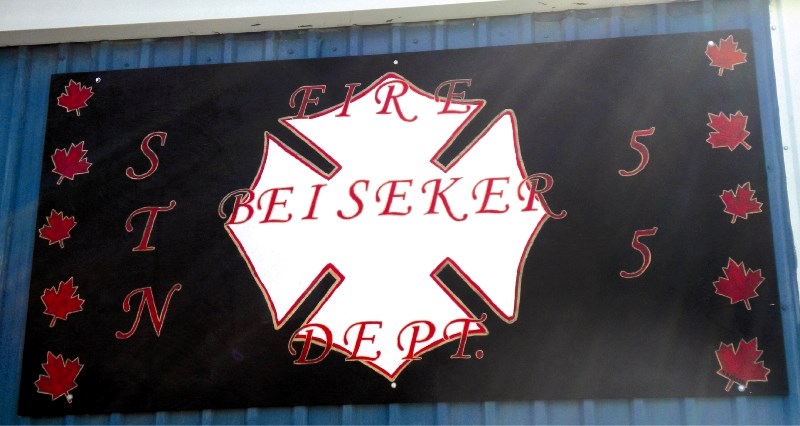Beiseker Fire Chief Nikki King said concerns raised recently about the Beiseker Fire Department’s occupational health and safety and training standards do not speak to the current state of the department.
According to a local report, multiple volunteer firefighters resigned in the fall of 2023 due to safety concerns in the workplace. King stated much of the concern was driven by a disgruntled former employee who was upset about not being promoted.
“We have numerous safety policies and procedures in effect,” King said in response to some of the concerns.
Documents obtained by local media stated that the department received three occupational health and safety (OHS) orders between 2021 and 2023 for contraventions, which they have since complied with.
Those orders included not having harassment and violence prevention procedures, not complying with COVID-19 protocols, and not providing proper training.
In response, King said they had a workplace harassment and violence policy in place but it needed to be in two separate documents to pass inspection. She added they were never cited for COVID-19 protocol violations or not providing proper training before sending employees out on jobs.
“We had a lot of challenges because we couldn't do our weekly training nights with COVID-19 [protocols] and we've worked to get a program and a procedure back in place so that everybody has baseline training,” King said. “COVID-19 kicked the crap out of our training department.”
King noted they could only have a limited number of people in the building during the COVID-19 pandemic. The department has since identified gaps in their training and implemented weekend training sessions.
Everybody who joins the department is tasked to go through recruit classes, she said, which are starting within the next month.
“We have a 64-hour baseline training that everybody is required to take before they're allowed to take a shift,” she added.
While training has always been available, she added that the majority of the training took place during shifts, when a captain was on duty.
“Standard first aid is a requirement of everybody that joins the department,” she said, addressing the allegation about a lack of formal training. “We've put on standard first aid training, we put on basic life support training, we've put on vehicle extrication training, we have put on hazardous awareness training, [and] SCBA training.”
A self-contained breathing apparatus (SCBA) is a device worn to provide breathable air in environments with oxygen deficiency, smoke, dangerous gases, and other airborne contaminants that may be otherwise dangerous to breathe.
One challenge the department faces is that all 76 of Beiseker’s firefighters, except for King, come from outside of the department’s jurisdiction and are required to work two shifts each month, which makes it difficult to motivate members to come out for mandatory training shifts.
“It's a balancing act,” King said. “We rely heavily on our employees that are already 1001 qualified.”
National Fire Protection Association (NFPA) 1001 training refers to the minimum job performance requirements for career and volunteer firefighters whose duties are primarily structural in nature, according to the NFPA.
The Beiseker Fire Department is 100 per cent volunteer staffed and King added that the expectation of having fully trained firefighters is simply not in their budget.
She added the department isn’t super busy with roughly 100 calls per year. The majority of those calls, she said, are medical.



